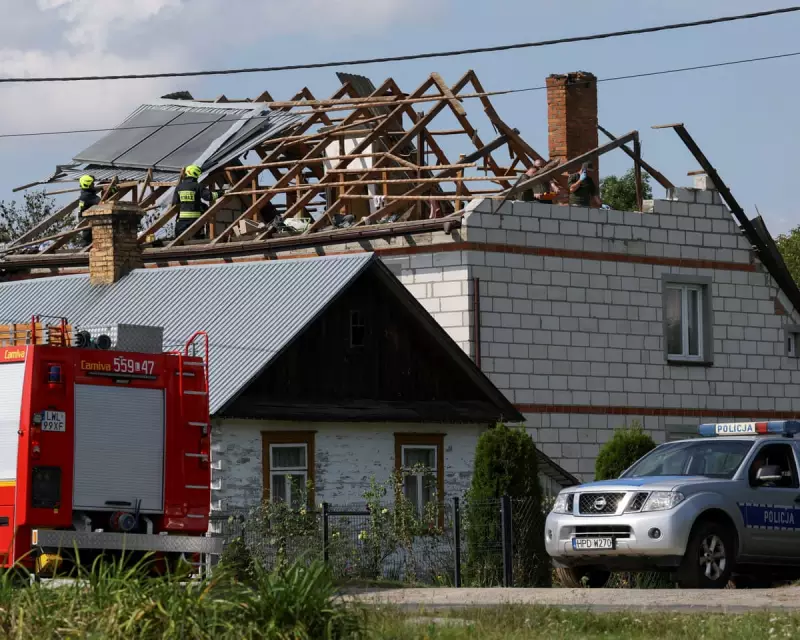
A tense and dangerous new phase in the Ukraine conflict emerged on Monday as NATO members Romania and Poland reported finding suspected debris from Russian drones on their sovereign territory. The incidents, which occurred hundreds of miles from the Ukrainian border, have sent shockwaves through the alliance and raised profound questions about European security.
The Romanian defence ministry confirmed that fragments from an unmanned aerial vehicle (UAV) were discovered near the village of Plopu, close to the Danube River and the Ukrainian border. This marks a significant and alarming escalation, potentially representing a direct physical breach of NATO airspace by Russian military hardware.
Poland's Swift Military Response
In a parallel and equally concerning development, Polish air defence systems were activated near the city of Rzeszów, a critical logistical hub for Western military aid flowing into Ukraine. While initial investigations suggest the object entered Polish airspace briefly before returning to Ukrainian territory, the event triggered emergency protocols and placed forces on high alert.
These events are not isolated. They form a pattern of increasingly brazen Russian operations near NATO's borders, testing the alliance's resolve and defensive capabilities. The proximity of these incidents to key infrastructure, including ports on the Danube and aid supply routes, suggests a deliberate strategy by Moscow.
The Looming Shadow of Article 5
Central to the crisis is the NATO treaty's Article 5 collective defence clause. Alliance officials have been forced to walk a diplomatic tightrope, carefully investigating each incident without immediately triggering the most severe response mechanisms. The balance is a precarious one: demonstrating unwavering resolve to defend every inch of allied territory while avoiding a rapid escalation into a direct confrontation between nuclear powers.
Meanwhile, in a move that threatens to fracture Western unity, former US President Donald Trump has proposed imposing staggering 60% tariffs on Chinese electric vehicles and 20% on all other EU imports if he returns to power. Such protectionist measures would likely ignite a major transatlantic trade war, undermining the economic cohesion that has been vital in supporting Ukraine and countering Russian aggression.
As the security situation in Eastern Europe deteriorates, the twin threats of military miscalculation and economic protectionism are creating a perfect storm for Western policymakers. The coming days will be a critical test of NATO's unity and its ability to deter further Russian provocations on its eastern flank.





